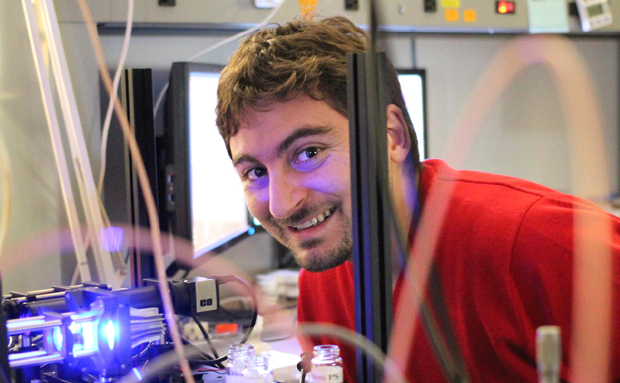
A new device from Bilkent graduate Selim Olçum and his team can measure masses as small as one millionth of a trillionth of a gram, in solution.
Selim Olçum (EEE/BS’03, MS’05, PhD’10), a research scientist in the Department of Biological Engineering at the Massachusetts Institute of Technology, has with his team devised a way to measure the mass of particles with a resolution better than an attogram—one millionth of a trillionth of a gram. Weighing these tiny particles, including both synthetic nanoparticles and biological components of cells, could help researchers better understand their composition and function.
The device, which is known as a suspended nanochannel resonator (SNR), consists of a fluid-filled channel etched in a tiny silicon micro-cantilever that vibrates inside a vacuum cavity. As particles flow through the channel, one at a time, their mass slightly alters the cantilever’s vibration frequency. The mass of a particle can be calculated from that change in frequency.
To make the device sensitive to very small masses, the researchers had to shrink the size of the cantilever, which behaves much like a diving board. “If you’re measuring nanoparticles with a large cantilever, it’s like having a huge diving board with a tiny fly on it. When the fly jumps off, you don’t notice any difference. That’s why we had to make very tiny diving boards,” Dr. Olçum explains. “Now we can weigh small viruses, extracellular vesicles, and most of the engineered nanoparticles that are being used for nanomedicine.”
The details of the device are described in the January 28, 2014 issue of the Proceedings of the National Academy of Sciences. The research was funded by the US Army Research Office through the Institute for Collaborative Biotechnologies, the Center for Integration of Medicine and Innovative Technology, the National Science Foundation and the National Cancer Institute.
